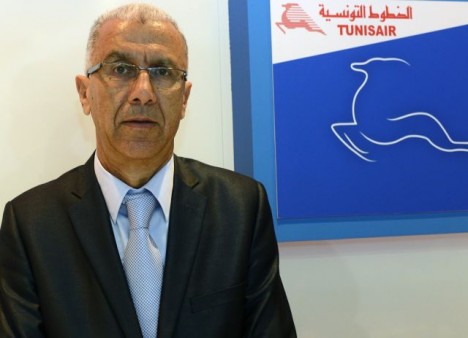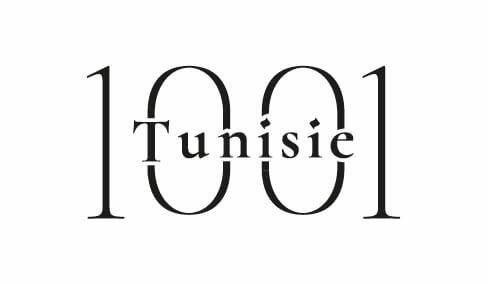
While talks to the Open Sky resume in early with their share of supporters and detractors, 1001Tunisie met this entrepreneur who for the least we can say is bread on Plate. Interview.
1001Tunisie: Tourism Minister Elyes Fakhfakh announced the creation of a tax on airlines to promote Tunisian tourism. What happened exactly?
Rabah Jerad: As a national company that has worked for years in partnership with the Ministry of Tourism, TunisAir does not feel concerned by this announcement. The tax announced by Elyes Fakhfakh amounts to 1% of airline revenues.
When you know that on average earnings of the past amounted to 4%, this tax would therefore correspond to ¼ profits … Add to this 30% tax rate. So companies would be taxed at 55%, which seems to me, at least, be nonsense. Moreover, in the current context, Tunis Air is not able to pay airport taxes.
Negotiations with the European Union about the Open Sky were to resume in September 2012 for a period of 6 to 12 months. How are the negotiations? How is Tunis Air preparing for it already knowing that it lives in a charter completely free world for decades? The challenge, among others, it is the “Low cost” flights from and to the international airport of Tunis Carthage.
The meeting with the European Union was postponed to October. European companies seeking to serve Tunis Carthage. But this airport is already at full capacity. I do not see how the airport could technically integrate other scheduled flights.
The infrastructure of Tunis Carthage is designed to accommodate 12 aircraft per hour. This summer, between the flow of tourists, TRE and Umrah, we have some hours had reached 30 / hour which explains the delays we were charged a lot.
In contrast, airports like Gafsa, Gabes, Tozeur, Tabarka have almost no more flights in Sfax, Tunis Air has a deficit of 50% of its flights. It is in this context that on 1 September, we closed the connection flights to Gafsa and Gabes because we were so onerous that we could no longer afford to maintain it. Here the Open Sky could bring a lot to its regions . But in Tunis, the Open Sky that benefit European companies would be a disaster for Tunisair.
Take the example of Morocco, the opening of the Moroccan sky to European companies almost just killed the “Royal Air Morocco.” But in Tunisia, we must first, in the field of air transport, carry out an upgrade of “Tunisair”. Be aware that as a national company, we are, we currently have 8,500 permanent employees for 33 aircraft … This is an absolutely absurd ratio.
Regarding the national company Tunisair, we recorded a loss of 100 billion dinars, a 14% drop in the number of travelers and -4.8% of operating revenues. The reasons given are those of rising fuel and increased insurance costs (+ 38%) and depreciation and not competition or the drop in tourism. How is the company? Whiat does this mean in terms of challenges?
The company is on the brink, I’m not telling anyone anything and the challenge is just to clean up, straighten it and ensure its sustainability. Ante management revolution but also post revolution, including the agreements of February 3, 2011, were catastrophic for Tunisair.
We are working for some time to a recovery plan that we had initially put the Transport Minister late October, but that we will deliver by the end of 2012.
The points of the plan on which we communicate are to reduce our debts and restructure profoundly “Tunisair” via a rundown but also a new organizational structure and strict savings at each level of the hierarchy.
Our challenges over the longer term are to improve the quality of our services via a particular setting level, better competitiveness of our tariffs, customer loyalty and attracting new.
We also need to develop and diversify our business because currently supply far exceeds demand. You should know that filling rates are around 60 to 70%.
We are also renewing half of our fleet as this, old, was subject to frequent technical problems engendered, breakdowns, delays and some decline in service quality. This renewal is done at 2 aircraft per year until 2017 and 3 A350 in 2020 and 2021. In the end we will have 16 new aircraft, 10 A320s, three A330s and three A350s.
You had a project to establish a connection hub between Europe and Africa. What is this project?
The acquisition of A330 jumbo jets, in the renewal of our fleet gives us the technical capacity to develop longer flights and notably towards Africa. So in Bamako (Burkina Faso), Abidjan (Ivory Coast), Dakar (Senegal) and Nouakchott (Mauritania) we serve already be added in March 2013 Tunis flights N’Djamena in Chad and Tunis-Douala, Cameroon .
In the end we will have here 4 years, 20 African destinations from Tunis Carthage. We are also studying a direct flight to Montreal Tunis-effective commissioning in 2014-2015.
The image of the company took a hit with the liquor ban on all its flights during the month of Ramadan, its frequent delays and quality of services is strongly criticized by users via social networks and the media. What plan do you intend to put in place to change the image of the company?
We must change the Tunis Air image. First, we must improve the quality of our services and it is such that we are renewing our fleet. This will result in lower technical problems thus less delay therefore a better quality of service.
Moreover, we must do an internal upgrade. Keeping Tunis Air as a national company, we have to clean up and make it competitive.
We are seeking a professional communicator to change our image through a large national and international communication campaign. This will gradually in place in 2013.
Interview by Aurélie Machghoul
{mainvote}

 َAbonnez-vous
َAbonnez-vous

